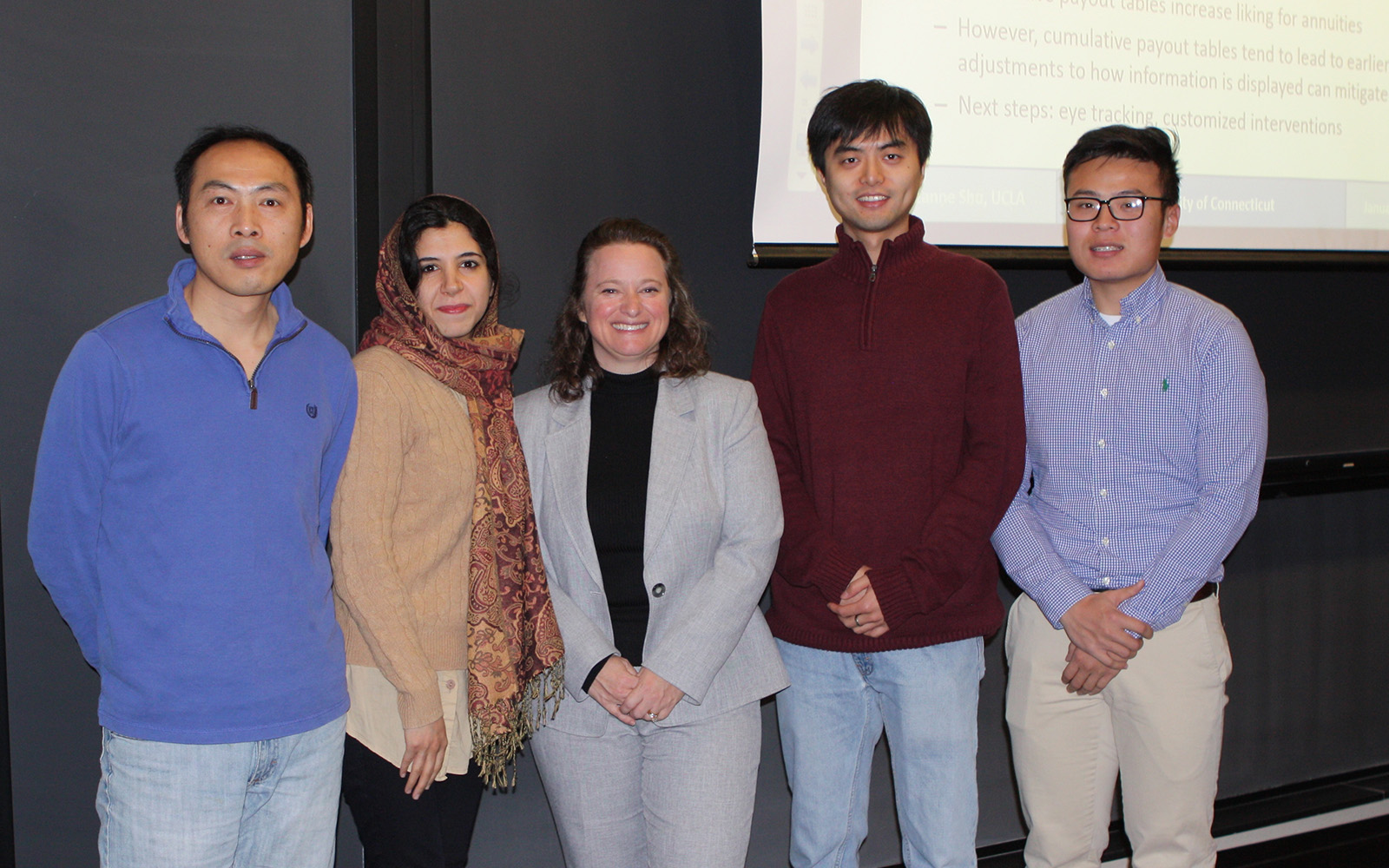
Ph.D. Student Speaker Series Continues with Marketing
UCLA Marketing Professor Suzanne Shu discussed retirement savings, and how individuals make their decisions about how much to save and how much to spend, during a presentation to faculty and doctoral students on Jan. 29.
“Risk, Ownership and Loss in Decumulation During Retirement,” was the topic of her speech, presented as part of the School of Business Ph.D. Student Speaker Series, which was attended by faculty and doctoral students. Continue Reading


